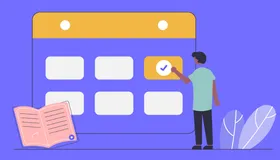List of IELTS Listening Answers Topics 2025
Acing the IELTS Listening section requires regular practice. Actively listening to a variety of audio materials and accents can significantly enhance your comprehension skills and make you familiar with the test format.
Check out these 100 expert-curated practice tests of the IELTS listening section to achieve your desired band score.
100 samples available
IELTS Listening Practice Test: Sample Questions
The IELTS Listening test consists of 4 parts and 40 questions. The questions are equally divided between all the parts. The 4 parts are as follows:
- Part 1: Conversation between 2 people.
- Part 2: Monologue set in a social context. (e.g., speech or announcement about local services or events.)
- Part 3: Conversation between 3-4 speakers in an academic context. (e.g., a tutor and students discussing an assignment).
- Part 4: Monologue based on academic topics.(e.g., university lecture or a seminar)
We have compiled sample questions for your reference, with one question set in each part.
Here are some downloadable sample papers below for your practice.
IELTS Listening Practice Test: Part 1
Recording 1 of the IELTS Listening Practice test plays a conversation set in an everyday social context. This audio uses simple and familiar vocabulary you would have studied while starting your English learning process.
You will hear a man enquiring about booking a hotel in the given audio. Listen to the audio and answer the given questions carefully.
Questions 1-4
Question Type: Complete the Table
In this question type, you are required to fill in missing information on a table based on the information you hear in the recording. These questions test your ability to listen for specific details and accurately transfer them to the table.
How to best answer:
- Understand what information you need to fill in (e.g., dates, names, figures).
- Quickly scan through the entire table to get an idea of its structure and the type of information missing.
- Pay attention to keywords and phrases in the table that may help you identify relevant information during the audio.
- As you listen, write your answers neatly and legibly, ensuring they fit within the provided space.
- Check spelling and grammar for accuracy.
- Finalise your answers.
Answers with Explanation for Questions 1-4
Explanation:
The given recording plays a conversation between a customer and a hotel staff. According to the information given in the audio, the average taxi fare for a trip to the town has been increased from 12 pounds to 15 pounds.
Explanation:
According to the audio, one of the transportation facilities that has been available in the town is the public bus. The bus fare is 2 pounds. A five-minute walk down the road from Oak Tree Avenue is recommended.
Explanation:
Walking across the town is also recommended in the recording. While opting to walk, covering the locations might take some time. However, it does not cost anything, like other travel methods. In addition, there is a nice park on the way, which is popular among visitors to York.
Explanation:
According to the recording, those interested in taking a walk can choose to walk across the town. A popular park is on the way, which takes around 30 minutes to cover.
IELTS Listening Practice Test: Part 2
Recording 2 of the IELTS Listening Test plays a monologue set in an everyday social context. The audio has more descriptive usages and is more specific than Part 1.
In the given audio, you will hear a woman explaining about the volunteering program at a company named Time Abroad.
Listen to the audio and answer the given questions carefully.
Questions 5-8
Question Type: Multiple Choice Questions
In this question type, you are required to choose the correct answer from a list of options. These questions may require you to select one or more answers, depending on the instructions.
How to best answer:
- Familiarise yourself with the questions before the recording starts to know what to listen for.
- Pay attention to keywords in the questions and answer choices that may help you identify the relevant information in the audio.
- If you are unsure, eliminate choices that you know are incorrect to increase your chances of guessing correctly.
- The information in the audio may be paraphrased, so be prepared to recognise synonyms or different phrasing.
- Verify and finalise your answers.
Answers with Explanation for Questions 5-8
5. The company expanded in
A. 2000
B. 2007
C. 2014
Explanation:
The recording plays the details given by staff at Time Abroad on the company’s formation, vision, and objectives. According to the information given, the company was formed in 2000. However, it was in the year 2007 that the company got expanded, by joining another company called PT Travel.
6. The number of permanent staff is
A. 75
B. 90
C. 150
Explanation:
The information given in the audio confirms that the number of full-time, permanent staff at Time Abroad is 150. All the staff are well-experienced in their fields and are mostly posted outside the country.
7. Most volunteers join the program
A. In Winter
B. In July
C. When it is best for them
Explanation:
According to the recording, the volunteering abroad program is highly flexible, suiting your time preferences. No permanent starting dates have been set, and the program runs throughout the year. Most people join when it is best for them.
8. Time Abroad receives all its income from
A. Partner organisations
B. Volunteers
C. The government
Explanation:
The informant in the recording declares that Time Abroad has not been receiving funds from specific religious bodies, political parties, or development organisations. Neither does it receive any from the government. It has been running purely based on the funds received from the volunteers.
IELTS Listening Practice Test: Part 3
Recording 3 of the IELTS Listening Test plays a conversation set in an educational or training context. The audio uses vocabulary that is related to academics.
In the given recording, you will hear a woman enquiring more about a Media Studies course at a University.
Listen to the audio and answer the given questions carefully.
Questions 9-10
Question Type: Multiple Choice Questions
Refer to question type Q5 - Q8 for information.
Q. Which two things must Louise have to join the course?
A. A bachelor's degree
B. Work experience
C. Either a bachelor's degree or work experience
D. Research experience
E. A completed thesis
F. Motivation
Answers with Explanation for Questions 9-10
Explanation:
The given conversation is between a student named Louise, who is applying for a Master’s Degree in Media Studies, and the head of the Media Studies course named Mark. According to the information given, the admission criteria include having a bachelor’s degree. If you do not have a bachelor’s, the application can still be processed if you have enough work experience.
Explanation:
As per the audio, the most important criterion for joining a Master's Program in Media Studies is ample motivation. Unlike other criteria, it cannot be negotiated.
IELTS Listening Practice Test: Part 4
Recording 4 of the IELTS Listening Test plays a monologue on an academic subject. It is the toughest audio for IELTS listening. However, the vocabulary remains basic and is more related to academics.
The given recording plays a lecture on the history of the Indian Railway.
Listen to the audio and answer the given questions carefully.
Questions 11-15
Question Type: Sentence Completion
In this question type, you are required to fill in the blanks in given sentences based on information you hear in the recordings. This type assesses your ability to understand spoken English and accurately interpret details.
How to best answer:
- Familiarise yourself with the context and what information is needed before the recording starts.
- Focus on keywords or phrases in the audio that match the blanks in the sentences.
- Pay attention to the word limit specified (e.g., "No more than three words").
- Verify and finalise your answer.
Answers with Explanation for Questions 11-15
11. Indian Railways is owned and________by the government of India.
Explanation:
The given audio plays a lecture on the history of the Indian Railway. According to the information given, the Indian Railway has been owned and operated by the government of India. It is administered through the Ministry of Railways.
12. There are more than_______million people working for Indian Railways.
Explanation:
As per the lecture, the Indian Railway is the world’s ninth-largest commercial or utility employer. 1.4 million people are employed by the Indian Railway, working across the country.
13. The________of the railways from 1857 occurred under Robert Maitland Brereton.
Explanation:
According to the audio, it was during the mid-nineteenth century that the Indian Railway began expanding across the country. The expansion began in 1857, under the supervision of Robert Maitland Brereton, a British engineer.
14. The joining of the East Indian Railway with the Great Indian Peninsula Railway led to a network of ________ Kilometres.
Explanation:
According to the audio, the first long rail network was established between the East Indian Railway and the Great Indian Peninsula Railway. The network was 6,400 kilometres long, and it connected Bombay and Calcutta.
15. The route from Bombay to Calcutta, opened in 1870, was an_______for the book Around the World in 80 days.
Explanation:
According to the recording, the Bombay to Calcutta rail network was started in 1870 by joining the East Indian Railway with the Great Indian Peninsula Railway. It became a major rail network and inspired the renowned French writer Jules Verne to write his book Around the World in 80 Days.
Top 3 IELTS Listening Practice Test Books
Books are essential for IELTS practice because they provide structured guidance, offering authentic test simulations, detailed explanations, and strategies to improve performance. With a variety of exercises and real exam-like conditions, books help reinforce key skills and boost confidence.
Here are the Top 3 IELTS Listening Practice Test Books that can help you prepare effectively for the IELTS Listening test:
1. The Official Cambridge Guide to IELTS
- Why it’s great: This book is produced by the makers of the IELTS exam, ensuring high-quality practice materials. It provides several authentic listening practice tests that mirror the real exam format, giving you a solid understanding of what to expect.
- Bonus: Comes with audio CDs and online resources for additional practice.
2. Target Band 7: IELTS Listening Practice
- Why it’s great: Targeted specifically for those aiming for a higher band score, this book offers detailed listening strategies alongside practice tests. Each test comes with explanations and tips on how to avoid common mistakes.
- Bonus: It includes audio files and sample answers to guide you through each section.
3. Barron's IELTS Superpack
- Why it’s great: Barron’s Superpack contains several full-length IELTS listening tests and detailed explanations. The variety of accents and topics makes it perfect for preparing for the range of material covered in the IELTS exam.
- Bonus: Accompanied by downloadable audio files and strategies to improve your performance.
These books not only offer high-quality listening practice but also come with strategies and tips that make your preparation more effective, helping you approach the test with confidence.
Top List of Vocabulary for IELTS Listening Practice Test
IELTS Listening Tips and Tricks
IELTS Listening can only be perfected by practice! Preparing for the test is hard without listening to sample audio or familiarising yourself with various question types.
Make your IELTS Listening Test preparation wholesome!
By utilising our IELTS Listening tips, you will be able to cultivate a healthy learning habit that will help you crack the IELTS and improve your language acquisition.
IELTS Listening Tips for Preparation
- Familiarise with the Test Format: Understand the four sections, 40 questions, and six question types in the IELTS Listening Test to navigate each part confidently.
- Practise Listening to Different Accents: Exposure to British, American, Australian, and other accents helps you understand varied pronunciations and tones often used in the test audio.
- Build Fluency through Conversation: Engage in English conversations to improve comprehension, fluency, and pronunciation. Practice noting how words sound in different contexts.
- Read Instructions Carefully: Pay close attention to instructions on word limits and response formats to avoid losing marks over simple errors.
- Manage Time Effectively: Use the given time to read questions, listen, and answer. If you encounter difficult questions, skip them and return later if time allows.
- Stay Focused on Keywords and Synonyms: Listen carefully for keywords or synonymous phrases, as they often help identify correct answers in the audio.
- Utilise Transfer Time Wisely (Paper Test): For the paper-based test, use the extra 10 minutes to review and neatly transfer answers to your answer sheet.
- Ask for Help if Needed: If audio issues or headphone problems arise, immediately inform the examiner to ensure you don’t miss critical information.













